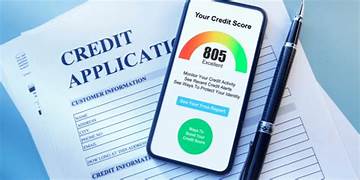Simple Steps to Improve Your Credit Score
Introduction
Your credit score is one of the most important factors when it comes to managing your finances. Whether you’re buying a car, applying for a mortgage, or getting a credit card, a good credit score can make all the difference in securing favourable terms and lower interest rates. However, improving your credit score isn’t something that happens overnight—it takes time and effort. If you’re looking to boost your credit score, there are simple, actionable steps you can take today to improve your financial standing in the long run.
In this article, we’ll break down the simple steps you can follow to improve your credit score. From understanding how your score is calculated to avoiding common pitfalls, we’ll cover everything you need to know to take control of your credit. Whether you’re starting from scratch or working to repair past mistakes, these tips will help you on your journey toward a better credit score and financial security.
1. Check Your Credit Report Regularly
Get a Free Copy of Your Credit Report
The first step in improving your credit score is understanding where you currently stand. You can get a free copy of your credit report once a year from each of the three major credit reporting agencies: Equifax, Experian, and TransUnion. Checking your credit report will give you a clear picture of your current credit status and help you identify any errors or discrepancies that could be negatively affecting your score.
Review Your Report for Errors
Sometimes, mistakes on your credit report can drag your score down. Look for any incorrect information, such as late payments, accounts that don’t belong to you, or balances that are higher than they should be. Dispute any inaccuracies with the credit bureau to have them corrected. This could result in a boost to your score if the errors are removed.
2. Pay Your Bills on Time
Set Up Payment Reminders
One of the most important factors in your credit score is your payment history. Late payments can have a significant negative impact on your score, so it’s crucial to make sure you pay your bills on time. Setting up payment reminders on your phone or calendar can help you stay on track. You can also set up automatic payments for bills to ensure you never miss a due date.
Consider Setting Up Direct Debits
If you struggle to remember your payment dates, consider setting up direct debits for your regular bills. This way, you’ll ensure timely payments without needing to worry about remembering every due date.
3. Reduce Your Credit Card Balances
Aim to Keep Your Credit Utilisation Below 30%
Credit utilisation refers to the amount of available credit you’re using on your credit cards. Ideally, you should aim to keep your credit utilisation below 30%. For example, if you have a credit card with a limit of £1,000, you should aim to keep your balance below £300. High credit utilisation can hurt your credit score, so paying down your balances can have a positive impact.
Make Larger Payments Towards High-Balance Cards
If you have multiple credit cards with high balances, prioritise paying down the ones with the highest balances first. Reducing these balances will have a more significant impact on your credit score by lowering your overall credit utilisation ratio.
4. Avoid Opening Too Many New Accounts
Limit New Credit Applications
Each time you apply for a credit card or loan, the lender will conduct a hard inquiry on your credit report, which can temporarily lower your score. If you open too many new accounts in a short period, it can signal to lenders that you’re a higher-risk borrower. Try to avoid opening new accounts unless absolutely necessary, and only apply for credit when you’re confident you can manage it responsibly.
Keep Your Old Accounts Open
Another important factor in your credit score is the length of your credit history. The longer your credit history, the better it reflects your ability to manage credit over time. Even if you don’t use an old credit card anymore, keeping the account open can help improve your credit score by increasing your overall credit history length.
5. Settle Any Outstanding Debts
Pay Off Collection Accounts
If you have any accounts in collections, it’s crucial to settle them as soon as possible. Accounts in collections can have a serious negative impact on your credit score. Once you’ve paid off the debt, request that the creditor update your credit report to reflect the payment. While the account may still be marked as “paid,” it will no longer be outstanding, and your credit score should improve over time.
Negotiate With Creditors
If you’re struggling to pay off debts, consider reaching out to your creditors to negotiate a payment plan. Some creditors may be willing to settle for a reduced amount or offer more manageable repayment terms. This can help you pay off the debt and get it off your credit report sooner.
6. Diversify Your Credit Mix
Have a Healthy Mix of Credit Types
Your credit score is also affected by the types of credit you have. Lenders like to see that you can manage different types of credit responsibly. For example, a mix of credit cards, auto loans, and a mortgage may be viewed more favourably than relying on credit cards alone. However, don’t open new credit accounts just to improve your credit mix—only take on additional credit if it makes sense for your financial situation.
Avoid Racking Up Too Much Debt
While having a diverse credit mix is beneficial, it’s important to avoid taking on too much debt. Only open new lines of credit if you need them and can handle the payments without jeopardising your financial health.
7. Consider a Secured Credit Card
Build Credit With a Secured Card
If you have no credit or poor credit, a secured credit card can help you build or rebuild your credit score. With a secured card, you make a deposit that serves as your credit limit. By using the card responsibly and paying off your balance on time, you can improve your credit score over time. Be sure to choose a secured card that reports to the major credit bureaus so that your progress is reflected in your credit score.
Treat Your Secured Card Like a Regular Credit Card
Treat your secured card just like any other credit card by making small purchases and paying off the balance in full each month. This will help you establish a positive payment history and build your credit score.
8. Seek Professional Help If Necessary
Consult a Credit Counsellor
If you’re struggling to improve your credit score on your own, consider seeking help from a professional credit counsellor. Credit counsellors can work with you to develop a debt management plan and offer advice on how to improve your credit. They can also help you understand your credit report and guide you through the steps of rebuilding your score.
Avoid Credit Repair Scams
Be cautious of companies that promise to repair your credit for a fee. Many of these services are scams that do little to improve your credit score. Always do your research before hiring a credit repair company and make sure they’re reputable.
Conclusion
Improving your credit score is a journey that requires patience, discipline, and a clear plan of action. By regularly checking your credit report, paying your bills on time, reducing credit card balances, and avoiding unnecessary credit applications, you can gradually improve your credit score. Remember, small steps can lead to big changes over time. With commitment and the right strategies, you’ll be on your way to better credit and a brighter financial future.
FAQs
1. How long does it take to improve my credit score?
Improving your credit score can take time, depending on your starting point. It may take several months to see significant improvements, especially if you’re addressing past mistakes.
2. Will paying off debt immediately boost my credit score?
Paying off debt can have a positive effect on your credit score, but it may not be immediate. It can take a few months for the improvements to be reflected on your credit report.
3. Should I close unused credit card accounts to improve my score?
It’s usually better to keep unused credit card accounts open, as this can help improve your credit score by increasing your overall available credit and lengthening your credit history.
4. What is the best way to track my credit score?
You can track your credit score through various free services, such as Credit Karma or directly through the credit bureaus. Many banks also offer free credit score updates.
5. How do credit inquiries affect my score?
Each hard inquiry can lower your credit score slightly. However, multiple inquiries over a short period of time can have a more significant impact.
6. Can I improve my score without using credit cards?
Yes, you can improve your score without credit cards by paying off loans, reducing debts, and managing your finances responsibly. A secured credit card can also help if you don’t currently have credit.
7. What should I do if I have a history of missed payments?
If you have missed payments, focus on making all future payments on time. Over time, positive payment history will improve your score, even if you still have some missed payments on your record.






